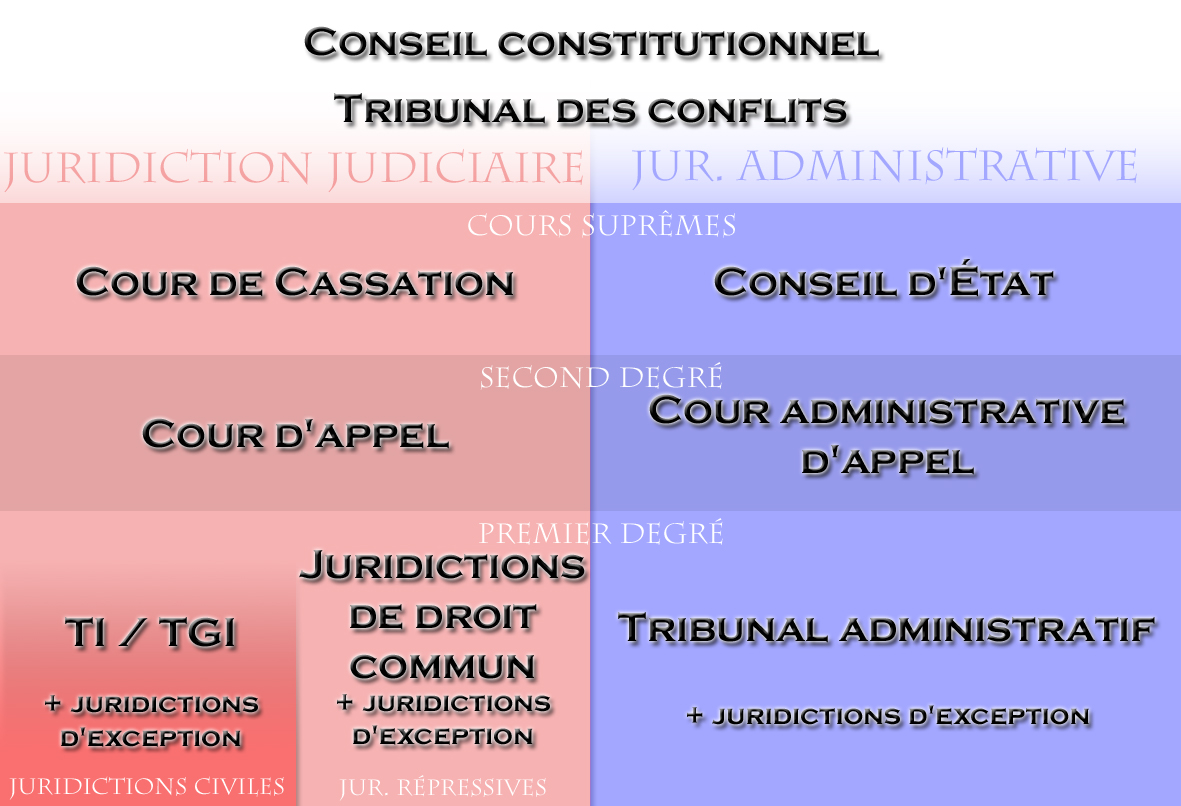|
Abstraction Principle (law)
The abstract system of title transfer () is a legal term in German law relating to the law of obligations () and property law ({{Lang, de, Sachenrecht). Although no express reference to it is made in the German Civil Code (BGB), the concept of separating a personal undertaking to pay or exchange goods or legal rights (e.g. through contract) from the conveyance of title to those goods or legal rights (e.g. through a deed or land registration) is fundamental to German private law (as well as Dutch law, South African law, and possibly Common law). General features Abstract title transfer dominates the entire BGB and is vital for the understanding of how it treats legal transactions, such as contracts. For example, under the BGB's system, ownership is not transferred by a sale contract, as in some other jurisdictions (e.g. France, Italy, etc.). Instead, the sale contract merely obligates the seller to transfer ownership of the good sold to the buyer, while the buyer is obligated to pa ... [...More Info...] [...Related Items...] OR: [Wikipedia] [Google] [Baidu] |
Law Of Germany
The law of Germany (german: das Recht Deutschlands), that being the modern German legal system (german: Deutsches Rechtssystem), is a system of civil law which is founded on the principles laid out by the Basic Law for the Federal Republic of Germany, though many of the most important laws, for example most regulations of the civil code (''Bürgerliches Gesetzbuch'', or BGB) were developed prior to the 1949 constitution. It is composed of public law (''öffentliches Recht''), which regulates the relations between a citizen/person and the state (including criminal law) or two bodies of the state, and the private law, (''Privatrecht'') which regulates the relations between two people or companies. It has been subject to a wide array of influences from Roman law, such as the Corpus Juris Civilis, to Napoleonic law, such as the Napoleonic Code. History German law has been subject to many influences over the centuries. Until Medieval times the Early Germanic Law, derived from t ... [...More Info...] [...Related Items...] OR: [Wikipedia] [Google] [Baidu] |
Legal Maxim
A legal maxim is an established principle or proposition of law, and a species of aphorism and general maxim. The word is apparently a variant of the Latin , but this latter word is not found in extant texts of Roman law with any denotation exactly analogous to that of a legal maxim in the Medieval or modern definition, but the treatises of many of the Roman jurists on and are to some degree collections of maxims. Most of the Latin maxims originate from the Medieval era in European states that used Latin as their legal language. The attitude of early English commentators towards the maximal of the law was one of unmingled adulation. In Thomas Hobbes, ''Doctor and Student'' (p. 26), they are described as of the same strength and effect in the law as statutes. Not only, observes Francis Bacon in the preface to his collection of maxims: The use of maxims will be "in deciding doubt and helping soundness of judgment, but, further, in gracing argument, in correcting unprofitable ... [...More Info...] [...Related Items...] OR: [Wikipedia] [Google] [Baidu] |
Civil Law (legal System)
Civil law is a legal system originating in mainland Europe and adopted in much of the world. The civil law system is intellectualized within the framework of Roman law, and with core principles codified into a referable system, which serves as the primary source of law. The civil law system is often contrasted with the common law system, which originated in medieval England. Whereas the civil law takes the form of legal codes, the law in common law systems historically came from uncodified case law that arose as a result of judicial decisions, recognising prior court decisions as legally-binding precedent. Historically, a civil law is the group of legal ideas and systems ultimately derived from the ''Corpus Juris Civilis'', but heavily overlain by Napoleonic, Germanic, canonical, feudal, and local practices, as well as doctrinal strains such as natural law, codification, and legal positivism. Conceptually, civil law proceeds from abstractions, formulates general principles, and ... [...More Info...] [...Related Items...] OR: [Wikipedia] [Google] [Baidu] |
African French
African French (french: français africain) is the generic name of the varieties of the French language spoken by an estimated 141 million people in Africa in 2018, spread across 34 countries and territories.29 full members of the Organisation internationale de la Francophonie (OIF): Benin, Burkina Faso, Burundi, Cameroon, Cape Verde, Central African Republic, Chad, Comoros, DR Congo, Republic of the Congo, Côte d'Ivoire, Djibouti, Egypt, Equatorial Guinea, Gabon, Guinea, Guinea-Bissau, Madagascar, Mali, Mauritania, Mauritius, Morocco, Niger, Rwanda, São Tomé and Príncipe, Senegal, Seychelles, Togo, and Tunisia. One associate member of the OIF: Ghana.One observer of the OIF: Mozambique.One country not member or observer of the OIF: Algeria.Two French territories in Africa: Réunion and Mayotte. This includes those who speak French as a first or second language in these 34 African countries and territories (dark and light blue on the map), but it does not include French s ... [...More Info...] [...Related Items...] OR: [Wikipedia] [Google] [Baidu] |
Law Of Portugal
The Law of Portugal is the legal system that applies to Portugal. It is part of the family of the civil law legal systems, based on Roman law. As such, it has many common features with the legal systems found in most of the countries in Continental Europe. In the 19th century, the French civil law was the main influence in the Law of Portugal. However, since the early 20th century, the major influence has been the German civil law. This growing of the Germanistic influence was mainly driven by works on civil law developed by legal theorists of the University of Coimbra under the leadership of professor Guilherme Alves Moreira, who published his decisive ''Instituições de Direito Civil'' from 1906 to 1916. European Union law is now a major driving force in many respects, such as corporate law, administrative law and civil procedure. The Law of Portugal is the basis or, at least, influences more or less sharply the legal systems of the several countries of the Community of Por ... [...More Info...] [...Related Items...] OR: [Wikipedia] [Google] [Baidu] |
Quebec Law
Quebec law is unique in Canada because Quebec is the only province in Canada to have a juridical legal system under which civil matters are regulated by French-heritage civil law. Public law, criminal law and federal law operate according to Canadian common law. Quebec law is under the shared responsibility of the federal government and the provincial government. According to the Constitution of Canada, these two governments are each responsible for enacting law when it falls under their sphere of competence. As such, the federal government is responsible for criminal law, foreign affairs, commerce, interprovincial transportation, and telecommunications. The provincial government is responsible for private law, the administration of justice and several social domains, such as social assistance, healthcare, education, and natural resources. The four classic sources of law, legislation, case law, doctrine and customary law, together make up Quebec law. Legislation is the primar ... [...More Info...] [...Related Items...] OR: [Wikipedia] [Google] [Baidu] |
Law Of Louisiana
Law in the state of Louisiana is based on a more diverse set of sources than the laws of the other 49 states of the United States. Private law—that is, substantive law between private sector parties, principally contracts and torts—has a civil law character, based on French and Spanish codes and ultimately Roman law, with some common law influences. Louisiana's criminal law largely rests on American common law. Louisiana's administrative law is generally similar to the administrative law of the federal government and other states. Louisiana's procedural law is generally in line with that of other U.S. states, which in turn is generally based on the U.S. Federal Rules of Civil Procedure. Sources Legislation The '' Louisiana Revised Statutes'' (R.S.) contain a very significant amount of legislation, arranged in titles or codes. Apart from this, the Louisiana Civil Code' forms the core of private law, the Louisiana Code of Civil Procedure' (C.C.P.) governs civil proce ... [...More Info...] [...Related Items...] OR: [Wikipedia] [Google] [Baidu] |
Law Of France
The Law of France refers to the legal system in the French Republic, which is a civil law legal system primarily based on legal codes and statutes, with case law also playing an important role. The most influential of the French legal codes is the Napoleonic Civil Code, which inspired the civil codes of Europe and later across the world. The Constitution of France adopted in 1958 is the supreme law in France. European Union law is becoming increasingly important in France, as in other EU member states. In academic terms, French law can be divided into two main categories: private law (''Droit privé'') and public law (''droit public''). This differs from the traditional common law concepts in which the main distinction is between criminal law and civil law. Private law governs relationships between individuals. It includes, in particular: * Civil law ('). This branch refers to the field of private law in common law systems. This branch encompasses the fields of inheritance law ... [...More Info...] [...Related Items...] OR: [Wikipedia] [Google] [Baidu] |
Contract Of Sale
A contract of sale, sales contract, sales order, or contract for sale is a legal contract for the purchase of assets (goods or property) by a buyer (or purchaser) from a seller (or vendor) for an agreed upon value in money (or money equivalent). An obvious ancient practice of exchange, in many common law jurisdictions, it is now governed by statutory law. See commercial law. Contracts of sale involving goods are governed by Article 2 of the Uniform Commercial Code in most jurisdictions in the United States and Canada. However in Quebec, such contracts are governed by the Civil Code of Quebec as a nominate contract in the book on the law of obligations. In some Muslim countries it is governed by sharia (Islamic law); however, many Muslim countries apply other law to contacts (e.g. the Egyptian Civil Code, based on the Napoleonic Code, which beyond its application in Egypt serves as the model for the civil codes of several other Arab states). A contract of sale lays out the te ... [...More Info...] [...Related Items...] OR: [Wikipedia] [Google] [Baidu] |
Meeting Of The Minds
Meeting of the minds (also referred to as mutual agreement, mutual assent or ''consensus ad idem'') is a phrase in contract law used to describe the intentions of the parties forming the contract. In particular, it refers to the situation where there is a common understanding in the formation of the contract. Formation of a contract is initiated with a proposal or offer. This condition or element is considered a requirement to the formation of a contract in some jurisdictions. History Richard Austen-Baker has suggested that the perpetuation of the idea of "meeting of minds" may come from a misunderstanding of the Latin term ''consensus ad idem'', which actually means "agreement to the amething". There must be evidence that the parties had each, from an objective perspective, engaged in conduct manifesting their assent, and a contract will be formed when the parties have met such a requirement. Concept in academic work German jurist, Friedrich Carl von Savigny is usually credi ... [...More Info...] [...Related Items...] OR: [Wikipedia] [Google] [Baidu] |
Canon Law
Canon law (from grc, κανών, , a 'straight measuring rod, ruler') is a set of ordinances and regulations made by ecclesiastical authority (church leadership) for the government of a Christian organization or church and its members. It is the internal ecclesiastical law, or operational policy, governing the Catholic Church (both the Latin Church and the Eastern Catholic Churches), the Eastern Orthodox and Oriental Orthodox churches, and the individual national churches within the Anglican Communion. The way that such church law is legislated, interpreted and at times adjudicated varies widely among these four bodies of churches. In all three traditions, a canon was originally a rule adopted by a church council; these canons formed the foundation of canon law. Etymology Greek / grc, κανών, Arabic / , Hebrew / , 'straight'; a rule, code, standard, or measure; the root meaning in all these languages is 'reed'; see also the Romance-language ancestors of the Engli ... [...More Info...] [...Related Items...] OR: [Wikipedia] [Google] [Baidu] |
.png)
_Chez_Maman_la_Joie.jpg)



